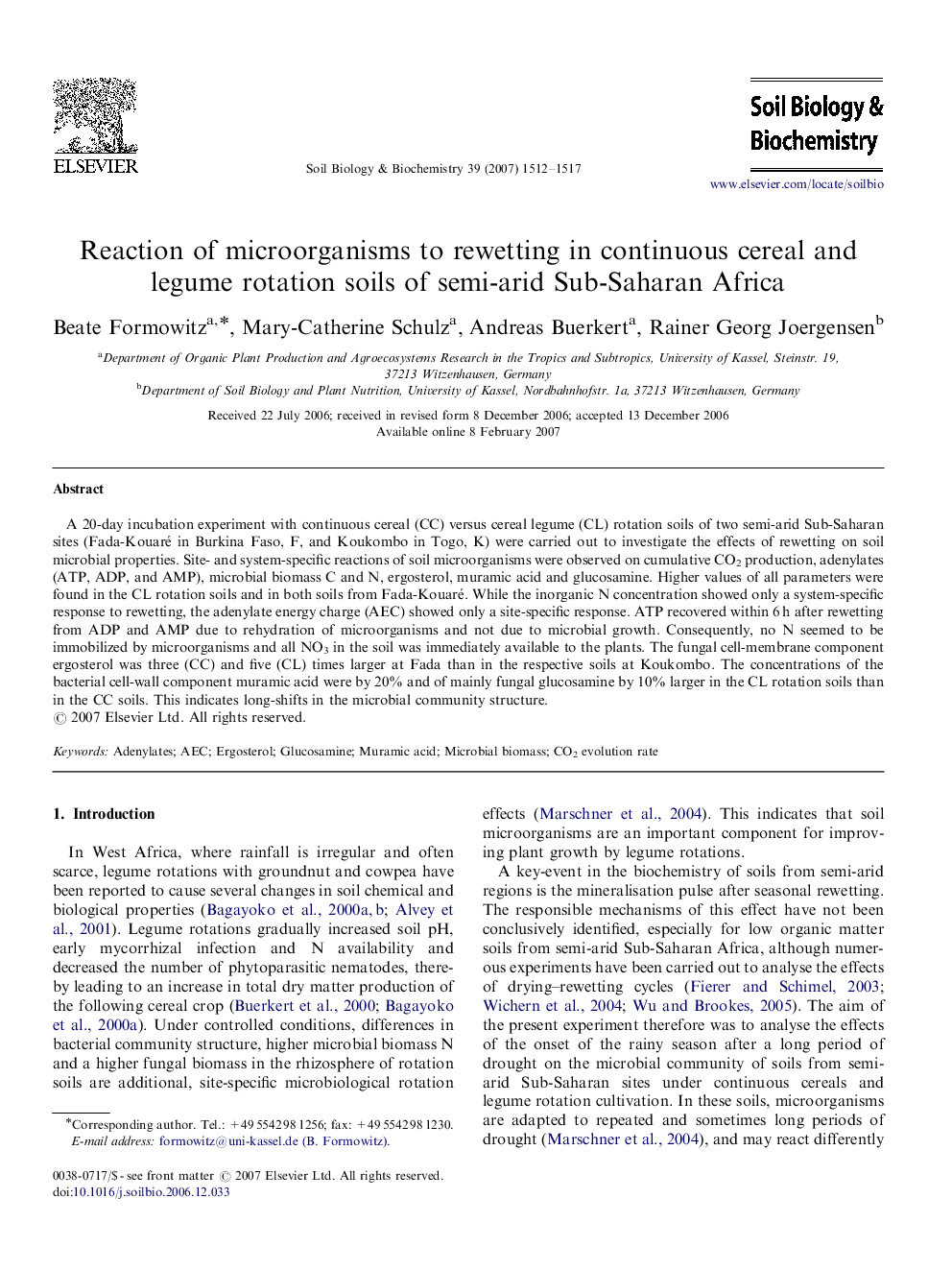| Article ID | Journal | Published Year | Pages | File Type |
|---|---|---|---|---|
| 2026216 | Soil Biology and Biochemistry | 2007 | 6 Pages |
A 20-day incubation experiment with continuous cereal (CC) versus cereal legume (CL) rotation soils of two semi-arid Sub-Saharan sites (Fada-Kouaré in Burkina Faso, F, and Koukombo in Togo, K) were carried out to investigate the effects of rewetting on soil microbial properties. Site- and system-specific reactions of soil microorganisms were observed on cumulative CO2 production, adenylates (ATP, ADP, and AMP), microbial biomass C and N, ergosterol, muramic acid and glucosamine. Higher values of all parameters were found in the CL rotation soils and in both soils from Fada-Kouaré. While the inorganic N concentration showed only a system-specific response to rewetting, the adenylate energy charge (AEC) showed only a site-specific response. ATP recovered within 6 h after rewetting from ADP and AMP due to rehydration of microorganisms and not due to microbial growth. Consequently, no N seemed to be immobilized by microorganisms and all NO3 in the soil was immediately available to the plants. The fungal cell-membrane component ergosterol was three (CC) and five (CL) times larger at Fada than in the respective soils at Koukombo. The concentrations of the bacterial cell-wall component muramic acid were by 20% and of mainly fungal glucosamine by 10% larger in the CL rotation soils than in the CC soils. This indicates long-shifts in the microbial community structure.
